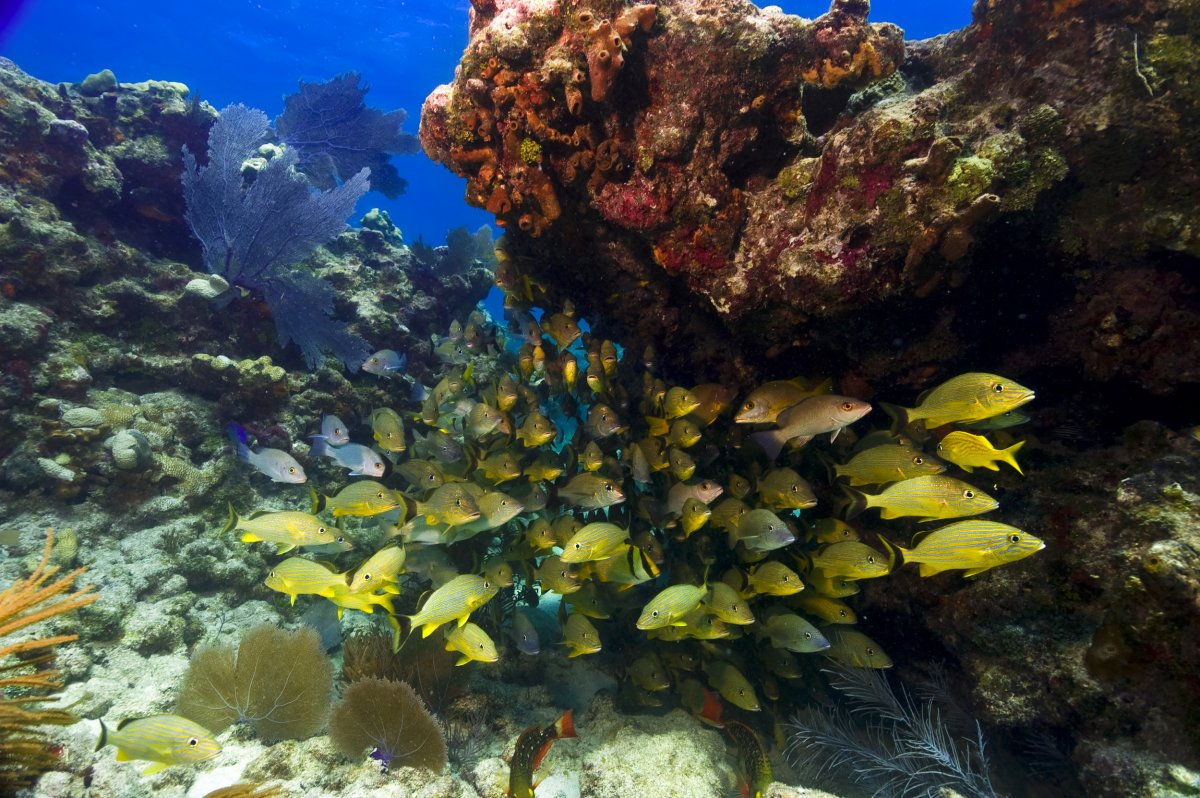Global warming isn't the only threat to coral reefs, according to scientists, who say nitrogen from sources like improperly treated sewage is also causing bleaching.
Researchers studied Looe Key Reef off the lower Florida Keys and found reactive nitrogen is also behind the process which leaves once vibrant coral a white color. Coral feeds on and gets its color from microscopic algae which lives in its tissue. If the algae becomes stressed, for instance by higher water temperatures, it leaves the coral. This leaves the coral without one of its main food sources, turning it pale and vulnerable to disease.
Sources of nitrogen include improperly treated sewage as well as fertilizers, top soil, and atmospheric deposition, according to the study published in the journal Marine Biology.
The authors investigated data gathered between 1984 to 2019, including on seawater samples collected during wet and dry seasons. They also monitored corals, took samples of abundant seaweed from the reef, and looked at long-term daily air temperature at Key West International Air Port as a proxy for the daily maximum air temperature in the area.
Between 1984 to 2008, levels of living coral at Looe Key Sanctuary Preservation Area dropped from around 33 percent to around 6 percent. After heavy rainfall hit the area in 1985 to 1987 and 1996 to 1999, the annual rate of coral loss rose. That's likely because of runoff from the Everglades, which is a drain for agricultural and urban areas up to Orlando, Florida.
Brian Lapointe, senior author and a research professor at Florida Atlantic University's Harbor Branch commented in a statement: "Our results provide compelling evidence that nitrogen loading from the Florida Keys and greater Everglades ecosystem caused by humans, rather than warming temperatures, is the primary driver of coral reef degradation at Looe Key Sanctuary Preservation Area during our long-term study."

Lapointe told Newsweek that in order to carry out the study, his team had to contend with rough seas, hurricanes, and green, turbid water that resulted in very low visibility in Looe Key, as well as sharks.
"Our study comes at a critical time when we are looking for the causes and factors associated with the coral reef crisis globally," he said. "There are a number of hypotheses that point to causes for reef decline, such as warming surface sea temperatures, ocean acidification, and even overfishing. However, none of these suspected factors played a major role in what we are seeing here in the Florida Keys."
He went on to state that the results are "not all doom and gloom."
"We should be comforted by the knowledge that there is a lot that we can do to mitigate this problem, not just in the Florida Keys but in all coastal regions around the world.
"We need to do a better job treating sewage, we to need to reduce fertilizer inputs, and in Florida, we need to increase storage and treatment of stormwater on the Florida mainland.
"We can clearly see how effective mitigation of nitrogen pollution is making a big impact in the Bonaire coral reefs in the Caribbean Netherlands. These coral reefs are beginning to recover after the construction of a new sewage treatment plant in 2011, which has significantly reduced nitrogen loading from septic tanks."
Lapointe said people should become aware of their "nitrogen footprint."
"There is a lot that people can do to make an impact, such as moderating their use of fertilizers, planting more trees, and being more aware of wastewater treatment and where there sewage goes, especially for people who live in coastal communities," he said.
Branwen Williams, Associate Professor of Environmental Science at the W.M. Keck Science Department who was not involved in the work told Newsweek: "This study is significant because it identifies a way for local communities to help reefs by reducing the local stress to corals. This is a case of think local and act local."
Williams said the study focused on one location and the results may not be relevant elsewhere. But he added: "my guess is that they would be."
Mirroring Lapointe, Williams said: "It is important for everyone to know that their actions on land impact their local reefs onshore: runoff from agriculture and sewage, particularly during storm events, compromise our reefs.
"By reducing our local stresses to corals, we may help them better deal with the global stressor of warming temperatures."
Uncommon Knowledge
Newsweek is committed to challenging conventional wisdom and finding connections in the search for common ground.
Newsweek is committed to challenging conventional wisdom and finding connections in the search for common ground.
About the writer
Kashmira Gander is Deputy Science Editor at Newsweek. Her interests include health, gender, LGBTQIA+ issues, human rights, subcultures, music, and lifestyle. Her ... Read more





